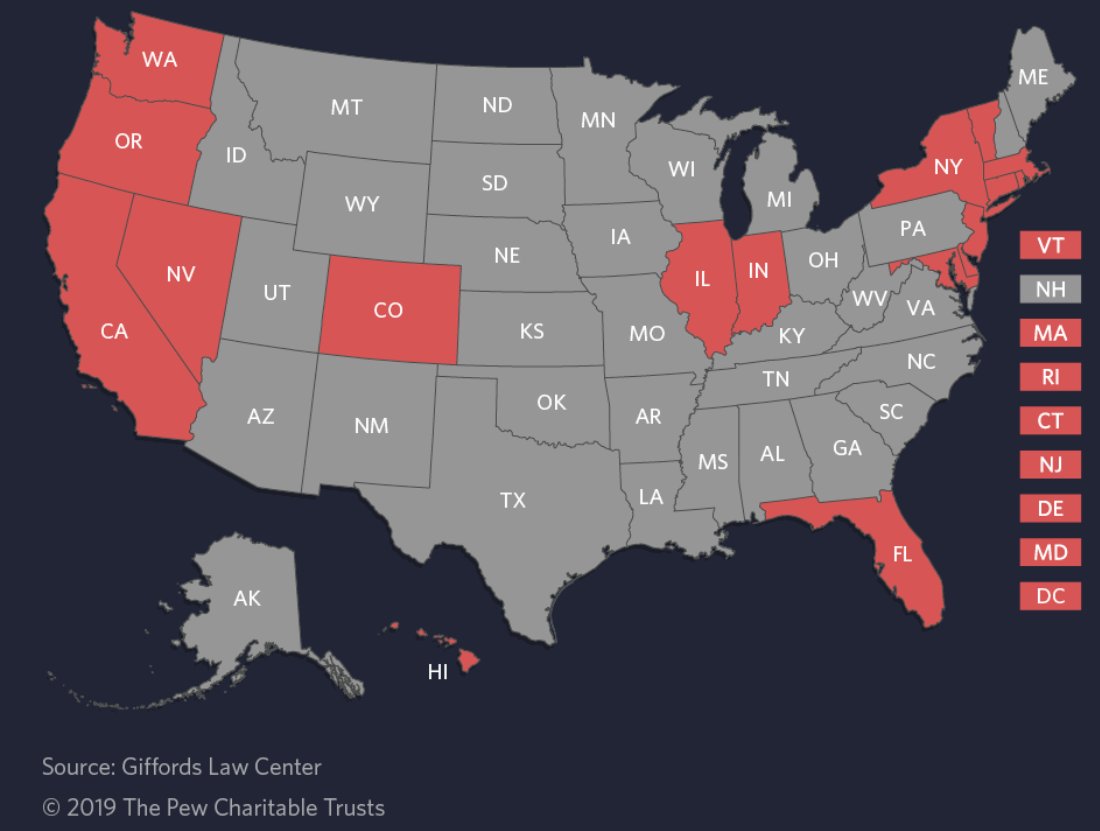After the recent shootings in Texas and Ohio, some discussions have centered on the implementation of additional Red Flag Laws (RFLs). These laws prescribe varying degrees of abilities for family, friends, medical providers, and police to petition a judge to allow law enforcement officers to seize an individual’s weapons if deemed a threat to themselves or the community. The 17 states that adopted RFLs have each taken a different approach to the specifics, making it challenging to compare their effectiveness or speak about them in sound bites. These nuances appear to be understudied, as Fourth View staff found only one study on the efficacy of RFLs. Its conclusion: RFLs are more effective at stopping firearm suicides than preventing mass shootings. This is partially why much of the debate has focused on balancing sensible gun legislation, due process rights, and Second Amendment rights rather than specifics. For perspectives on this, we went to Florida, a state where the echos of the Parkland High School shooting still resonate and where a Red Flag Law was implemented last year.

Red Flag Laws Should Be Implemented Narrowly
Brandon Keller, Fourth View Contributor
Red Flag Laws should be implemented, but in a very restrictive form with stringent requirements. Mental health, a much discussed issue, is an aspect that would most likely not be considered in the potential application of RFL. This is because privacy rights of an individual would most likely be violated. Nevertheless, clear and concise evidence that shows an individual is an immediate threat to themselves or others would be a reasonable restrictive requirement to trigger an application of RFL. There is still room for debate about what “evidence” would put the law into effect. However, it is needless to say, that most reasonable people would not want a person who is a clear danger to themselves or others to have a firearm. While most mass shootings are committed by handguns, a wound from a semi-automatic rifle such as the AR-15, could be more fatal. Hence, restrictive RFL should, without question, be an idea discussed among lawmakers for consideration.
Government Is Incapable Of Enforcing Red Flag Laws
Jordan Lohmeyer, Recent Graduate of the University of South Florida
People believe that politicians have their best interests in mind by implementing Red Flag Laws in order to prevent mass shootings. Although these laws sound nice, in practice, the incompetence of our government to accomplish anything will allow these laws to be extremely exploited and unfairly abused for the left to carry out their agenda of taking guns out of the hands of law-abiding citizens. These laws turn America into “Minority Report”, a film in which citizens are arrested for crimes that they *might* commit in the future. These laws also destroy the presumption of “innocence until proven guilty”, as second amendment-abiding citizens will be reported by leftists and anti-gun fascists who just want to take guns out of the hands of all Americans. RFL will, in fact, do the opposite of what they are intended to do.
Why Are We Not Treating Gun Violence As A Public Health Crisis?
Armond Sarduy, Student Journalist at the University of Central Florida
I believe there are many ways that we can curb gun violence in our country. More and more, you see politicians advocating for Red Flag Laws, but critics of those laws argue if it is enough to stop gun violence. One idea that I think is plausible is funding CDC research into gun violence. Gun deaths, especially at this magnitude, can be categorized as a public health problem. According to Business Insider, the US spends less money researching gun violence than it does on almost any other leading cause of death. They also mention research’s critical role in developing gun ownership and violence data that could be used to inform policies which cut down on gun violence and mass shootings.
Response from Senator Marco Rubio’s Office
– Nick Iacovella, Press Secretary for Marco Rubio
Senator Rubio introduced his Red Flag proposal 18 months ago. He still supports the proposal. Earlier this month we urged the judiciary committee to take it up. [Read the full statement here]
Here’s what Senator Rubio told The Washington Post: “It’s the best route forward because it can pass, the president will sign it and it can actually stop the next attack,” Sen. Marco Rubio (R-Fla.), who drafted legislation to encourage more states to pass their own red-flag laws, said in a phone interview Wednesday. He began working on the legislation after the Parkland shooting.
“If you look at all the studies that have been done, you see that invariably, with perhaps the exception of Las Vegas, they all exhibited signs and warnings to people around them that they could do something,” Rubio said.

